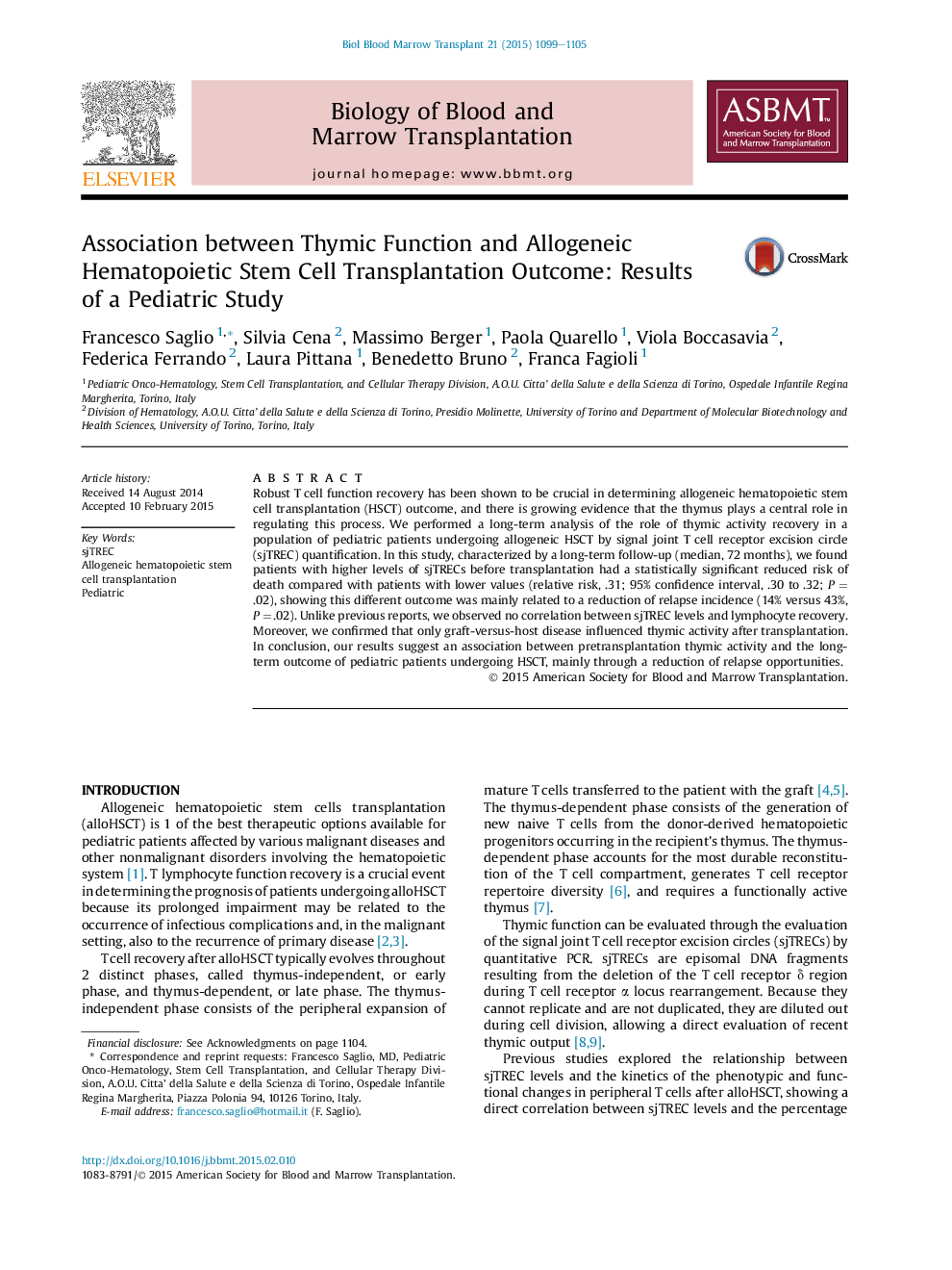| Article ID | Journal | Published Year | Pages | File Type |
|---|---|---|---|---|
| 2101558 | Biology of Blood and Marrow Transplantation | 2015 | 7 Pages |
•In a pediatric population undergoing hematopoietic stem cell transplantation we show an association between a more efficient pre-transplantation thymic function, measured by sjTRECs quantification, and improved overall survival.•This improved survival rate is mainly related to a reduction of the relapse opportunities and not to a reduction of transplant related mortality.•Multivariate analysis shows that higher pre-transplantation sjTREC levels are associated with patients' outcome independently from other variables investigated, including the presence of an advanced disease phase at the transplantation.•No correlation between pre-transplantation sjTREC levels and immune recovery has been observed.
Robust T cell function recovery has been shown to be crucial in determining allogeneic hematopoietic stem cell transplantation (HSCT) outcome, and there is growing evidence that the thymus plays a central role in regulating this process. We performed a long-term analysis of the role of thymic activity recovery in a population of pediatric patients undergoing allogeneic HSCT by signal joint T cell receptor excision circle (sjTREC) quantification. In this study, characterized by a long-term follow-up (median, 72 months), we found patients with higher levels of sjTRECs before transplantation had a statistically significant reduced risk of death compared with patients with lower values (relative risk, .31; 95% confidence interval, .30 to .32; P = .02), showing this different outcome was mainly related to a reduction of relapse incidence (14% versus 43%, P = .02). Unlike previous reports, we observed no correlation between sjTREC levels and lymphocyte recovery. Moreover, we confirmed that only graft-versus-host disease influenced thymic activity after transplantation. In conclusion, our results suggest an association between pretransplantation thymic activity and the long-term outcome of pediatric patients undergoing HSCT, mainly through a reduction of relapse opportunities.
